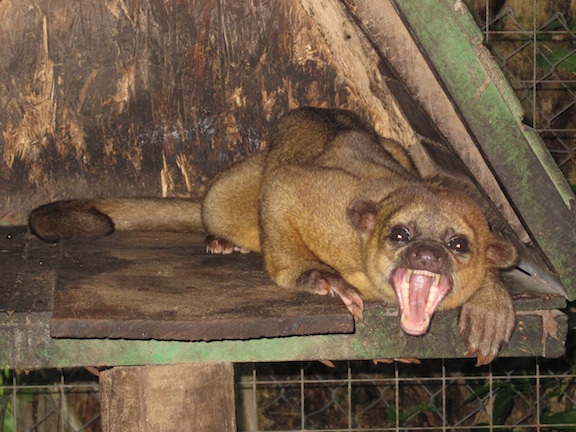|
Procyonidae
Procyonidae ( ) is a New World family of the order Carnivora. It includes the raccoons, ringtails, cacomistles, coatis, kinkajous, olingos, and olinguitos. Procyonids inhabit a wide range of environments and are generally omnivorous. Characteristics Procyonids are relatively small animals, with generally slender bodies and long tails, though the common raccoon tends to be bulky. Because of their general build, the Procyonidae are often popularly viewed as smaller cousins of the bear family. This is apparent in their German name, ''Kleinbären'' (small bears), including the names of the species: a raccoon is called a ''Waschbär'' (washing bear, as it "washes" its food before eating), a coati is a ''Nasenbär'' (nose-bear), while a kinkajou is a ''Honigbär'' (honey-bear). Dutch follows suit, calling the animals ''wasbeer'', ''neusbeer'' and ''rolstaartbeer'' (curl-tail bear) respectively. However, it is now believed that procyonids are more closely related to musteli ... [...More Info...] [...Related Items...] OR: [Wikipedia] [Google] [Baidu] |
Kinkajou
The kinkajou ( /ˈkɪŋkədʒuː/ ''KING-kə-joo''; ''Potos flavus'') is a tropical rainforest mammal of the family Procyonidae related to olingos, coatis, raccoons, and the ringtail and cacomistle. It is the only member of the genus ''Potos'' and is also known as the "honey bear" (a name that it shares with the unrelated sun bear). Though kinkajous are arboreal, they are not closely related to any other tree-dwelling mammal group (primates, some mustelids, etc.). Native to Mexico, Central and South America, this mostly frugivorous mammal is seldom seen by people because of its strict nocturnal habits. However, it is hunted for the pet trade, its skin (to make wallets and horse saddles), and its meat. The species has been included in Appendix III of CITES by Honduras, which means that exports from Honduras require an export permit, and exports from other countries require a certificate of origin or of re-export. They may live up to 40 years in captivity. Etymology The ... [...More Info...] [...Related Items...] OR: [Wikipedia] [Google] [Baidu] |
